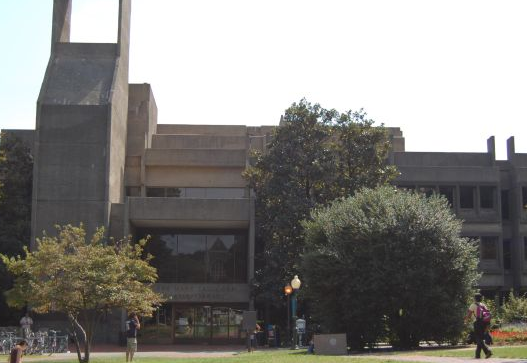At their Oct. 23 meeting, GUSA senate voted in favor of a referendum proposal that will ask undergraduates their opinions regarding the university’s plan to be smoke- and tobacco-free. The proposal passed with 26 votes in favor, no votes opposed, and one abstention. The referendum is non-binding, and the university held a public forum Oct. 24 to discuss their plan to make Georgetown smoke-free and tobacco-free.
Henry Callander (COL ‘18) sponsored the proposal, which the senate first debated at their Oct. 16 meeting. The first proposal differed slightly from the final one the senate approved. Instead of two responses, “agree” and “disagree,” the senate decided to add a third option, “no preference/undecided.” The senate also specified the language so the referendum now asks students’ opinion on whether only the main campus should be smoke free. The final proposal also specified Dec. 1 as the referendum date.
Smoke Free Georgetown, a movement started by Mac Williams (NHS ‘17) at the beginning of the semester, organized a petition which prompted Callander’s proposal. Williams is content with the outcome of the senate’s vote. “Anytime you get 26 out of 27 in favor and one abstain, obviously pretty positive. Originally, I wanted it to be a binary option of yes/no, but if the senators think that that’s what’s best to have a third option of no preference/undecided, if that’s what they think is best for the student body, I think it’s good,” he said.
Saad Bashir (COL ‘19) was the only senator who did not vote “yes” to the referendum. Although he was not physically present at the meeting, he participated via video chat in the senate’s discussion. According to Bashir, the three possible responses do not give students an accurate way to voice their thoughts.
“Smoke-free campus is a major issue that almost everybody on campus has an opinion on, but the problem is that most of those opinions are not black and white. It’s not about whether they believe in a smoke-free campus or not, but instead have their own individual opinions on the nuances of the issue,” wrote Bashir in an email to the Voice. “Some may believe it’s just a matter of enforcement, others might advocate for smoking zones, but in the end do not agree with the two choice of completely banning smoking or leaving it as is.”
Bashir does not believe the third option made it possible to see more nuance in the issue. “The option of undecided I also believe to be not of that much use because regardless of the results, the University will use the referendum as a method through which they can justify whichever action they make take,” he wrote. “The option of undecided will be seen as a lukewarm option that does not disagree whatever the campus smoking policy change might be.”
The university held a Roundtable on the issue Oct. 24 to hear student concerns regarding the its plans to become smoke-free and tobacco-free. At the roundtable, Charles DeSantis, associate vice president for benefits, payroll, and wellness and chief benefits officer, announced the university’s goal to become completely smoke- and tobacco-free by the 2017-2018 school year and released a tentative, step-by-step schedule to meet this goal.
Enushe Khan (MSB ‘17), GUSA president, is in favor of the referendum and hopes it will guide GUSA’s action in the future regarding the smoke-free and tobacco-free initiative. “I think the referendum for a smoke-free and tobacco-free campus is important. As GUSA President, I genuinely do not know where the majority of our campus stands on this issue, which is why I cannot in good conscience take a position on behalf of our student body without knowing how they feel,” she wrote in an email to the Voice. “This referendum will help inform GUSA’s next steps in the conversation.”

Lauinger Library / Photo: Georgetown Voice




